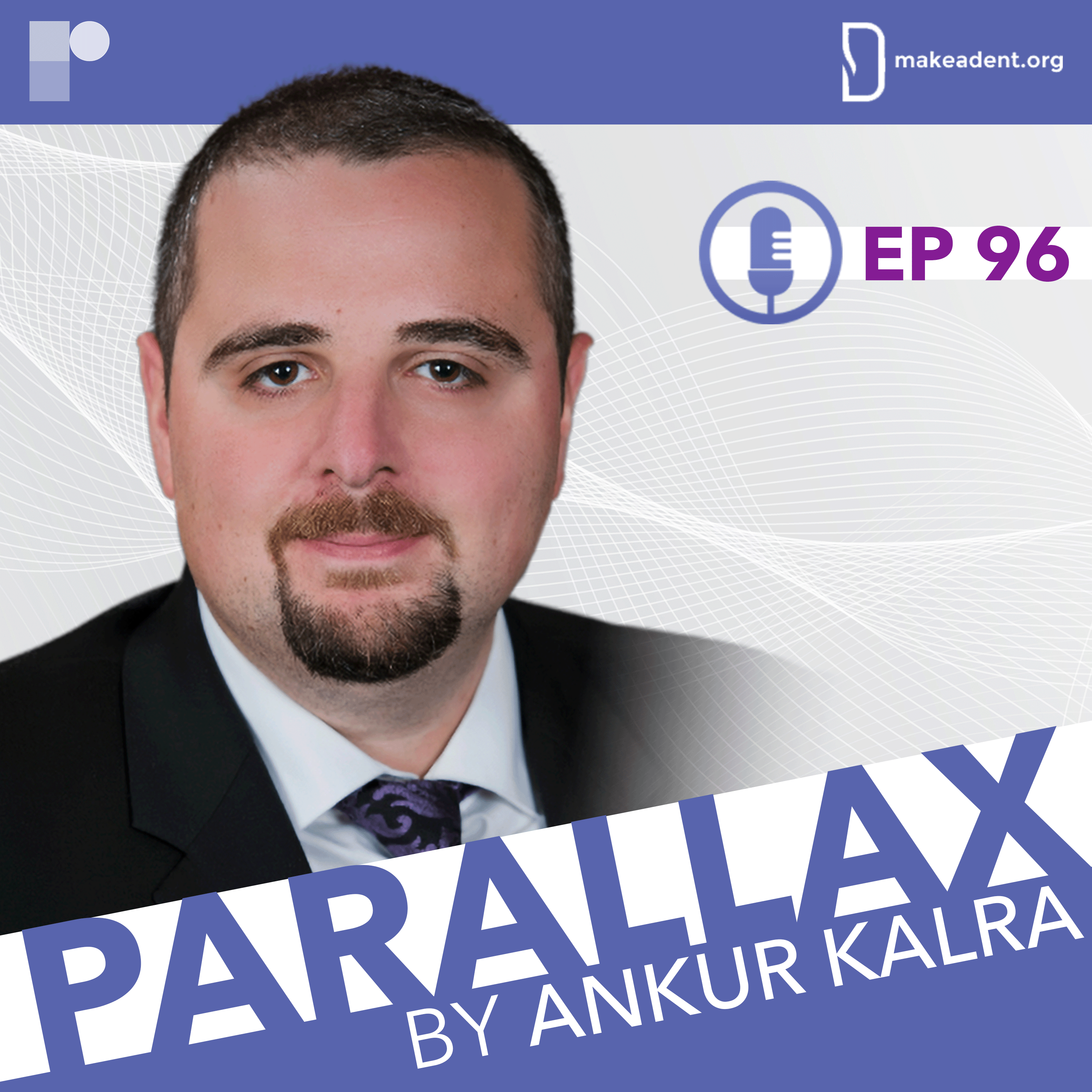
In the second episode of our mini-series "Conversations about Hypertrophic Cardiomyopathy", Dr Ankur Kalra sat down with Dr Ahmad Masri to have a deep-dive into the management paradigms of hypertrophic cardiomyopathy (HCM), considering the evolution of medical therapy in recent years. Dr Ahmad Masri is a Cardiologist and the Director of OHSU Hypertrophic Cardiomyopathy Center.
This series is supported by an unrestricted educational grant from Bristol Myers Squibb. Please see www.camzyosrems.com for important safety information.
Dr Kalra invites Dr Masri to guide us through his decision-making process in evaluating medical and surgical options in patients with obstructive hypertrophic cardiomyopathy. Dr Masri delves into first and second-line treatment strategies while exploring the significance of FDA-approved cardiac myosin inhibitors in the management of hypertrophic cardiomyopathy. Dr Kalra asks Dr Masri about the practical office-based clinical course for patients deemed suitable candidates to receive mavacamten. Dr Masri provides a clear and practical outline of what it entails to opt for this second-line medical therapy including the REMS programme required for therapy (www.camzyosrems.com). Dr Masri highlights the importance of looking at HCM patients holistically to find the treatment which best fits their circumstances and preferences in choosing surgical and medical therapy options.
What are the available management options for patients with HCM? How does Dr Masri approach shared decision-making in the management of HCM? What are some of the practical considerations regarding the cardiac myosin inhibitor, mavacamten?
This content is intended for US-based physicians.
This series is supported by an unrestricted educational grant from Bristol Myers Squibb.

Dr Owens is Medical Director of the Center for Inherited Cardiac Disease and Associate Professor of Medicine at the Hospital of the University of Pennsylvania.
This series is supported by an unrestricted educational grant from Bristol Myers Squibb. Please see www.camzyosrems.com for important safety information.
This content is intended for US-based physicians.

The charity organisation, Women as One is an agent for women and men to be part of medicine that is built on talent, rather than a privilege. Roxana and Ankur discuss the role of mentorship and family-friendly work environment in mending the broken house of cardiology. Roxana talks about the practical tools that are available for women to take the next steps in their career and achieve their goals.

Dr Kalra asks Dr Mauri about early influences and her traineeship with legendary interventionalists, the late Donald Baim and Richard Kuntz. Dr Mauri talks openly about her decision-making process and the importance of selecting your priorities and committing to them. Ankur asks Laura about her decision to go into industry. Laura shares her thoughts on medical innovations and meeting urgent needs with unique perspectives.
What is Dr Mauri’s advice for a young cardiologist? How did she balance research and patient care? What are the questions that helped her decision making? How does Dr Mauri think about innovations in medicine?

Brigham and Women’s Hospital’s Health Equity Committee decided to confront the status quo by asking: How is racism on a structural level present within our walls?
Ankur Kalra’s guests Michelle Morse (Founding Co-Director of EqualHealth and Assistant Professor at Harvard Medical School) and Lauren Eberly (Cardiology Fellow at the University of Pennsylvania) are co-authors of a retrospective study that demonstrated what had previously only been observed: That black or brown heart failure patients ended up in general medicine rather than specialised cardiology services. Following the publication of the study in November 2019, the Health Equity Committee started to roll out anti-racism trainings and to work on objective admission guidelines to mitigate biased behaviours.
Aarti Bhatt (Assistant Professor of Medicine at the University of Minnesota), member of the Minnesota chapter of Campaign Against Racism, talks about their initiative to support projects that have a positive impact on local communities on a global scale.

In this week’s Parallax, Dr Kanaa’N, the director of the program, and Dr Lahorra, chairman of the Heart, Vascular & Thoracic Department of Akron General introduce the listeners to the foundations of their program and the paradigm shift brought by TAVR.

Ankur Kalra asks Grant W Reed, Director of the Cleveland Clinic’s STEMI program, to reflect on the actions they took and the challenges of delaying cardiovascular procedures in the wake of the coronavirus pandemic. Dr Reed offers insight on the factors that influenced the Cleveland Clinic’s STEMI policy for COVID-19. Ankur and Grant discuss the triage considerations for patients with structural heart disease and the steps the clinic took to protect its healthcare workers.
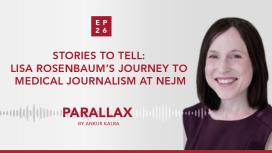
In this edition of Parallax Dr Kalra asked Dr Rosenbaum about the influences that shaped her choices as a writer and as a healthcare professional. Dr Rosenbaum opens up about her childhood and how she connected to her grandfather through writing and medicine. We learn about Lisa’s first day at medical school and her latest writing project.
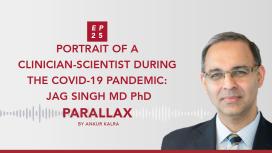
Jagmeet P Singh, associate chief of the cardiology division at Massachusetts General Hospital and professor of medicine at Harvard Medical School joins Ankur Kalra for a deep conversation about his journey across three continents. Dr Singh talks about the importance of choosing fulfilment over success. We gain more insights on the recent late-breaking trial, MADIT-CHIC focusing on cardiac resynchronization therapy. Ankur asks Jag about his experience of being on the other side of the healthcare system and his enrolment in the since halted remdesivir trial.
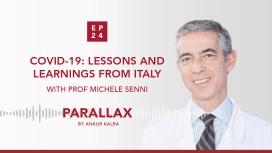
Prof Michele Senni is Director of Cardiology at Papa Giovanni XXIII Hospital, Bergamo Italy. He contracted COVID-19 himself and in this latest podcast he meets with Ankur Kalra, MD to discuss his personal experience in dealing with patients and COVID-19 in Europe’s outbreak epicentre.
Hear them discuss the burden on healthcare, patient selection, the importance of testing and PPE and how COVID has resulted in a reduction of acute myocardial infarction and heart failure in patients.
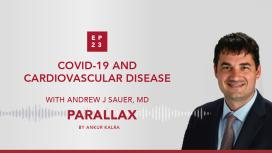
In this latest episode, Ankur Kalra, MD meets with Andrew Sauer, MD, co-author of an upcoming paper in US Cardiology Review on COVID-19 and Cardiovascular Disease that provides a concise and current summary of cardiovascular complications from COVID-19.
Hear them discuss the latest issues surrounding the pandemic, the known cardiac implications and the rapidly emerging data.
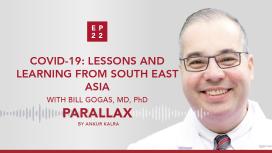
Hear Bill’s take on how East Asia responded to and successfully managed the pandemic and how they are now seeing a significant reduction in cases outside the epicentre. Hear how the strategy resulted in only 93 patients in Bill’s city of Nanjing, testing positive for coronavirus with a city population of 8 million.
Learn about effective responses, the importance of early control and how as a cardiovascular physician, your life and practice may be impacted by the virus.
Submit your question to Ankur via: podcast@radciffe-group.com.
Hosted by @AnkurKalraMD. Produced by @RadcliffeCARDIO.
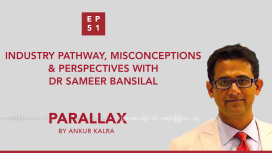
Dr. Bansilal was an Assistant Professor of Medicine at the Icahn School of Medicine at Mount Sinai when he decided to seek an alternative pathway to make an impact on patients’ lives.
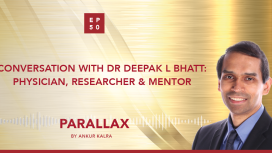
In the 50th episode of Parallax, Dr. Ankur Kalra’s guest is Dr. Deepak L. Bhatt leading physician, researcher, lecturer, and educator who has authored or co-authored over 1650 publications and was recipient of the ACC’s Distinguished Mentor Award in 2018 and AHA’s Distinguished Scientist Award in 2019.
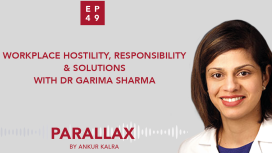
The American College of Cardiology surveyed cardiologists across the globe to have a more detailed understanding on the impact of hostility, discrimination, and harassment in the workplace. Of almost 6000 cardiologists who took part in the survey 44% reported hostile work environment.
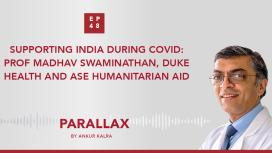
In this week's latest podcast episode, host, Ankur Kalra, MD, meets guest Prof Madhav Swaminathan (Duke University Health System, NC, US) to discuss how he has orchestrated a major humanitarian effort, in association with Duke University Health and The American Society of Echocardiography, to supply ventilation equipment and PPE to hospitals and NGOs during the current COVID-19 crisis in New Delhi, India.
Hear them discuss the challenges and learnings associated with the supply chain, inventory, logistics and cost to deliver this humanitarian effort; which most recently resulted in $140,000 of life-changing equipment being delivered to four key hospitals in New Delhi. A most inspirational episode.
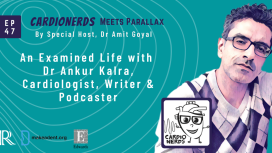
In this candid and spiritual conversation Amit and Ankur take a journey through former episodes of Parallax and Ankur’s writings to explore what it takes to strive for a deeper knowledge of ourselves; or, as Ankur puts it, dharma, the inherent order of reality.





